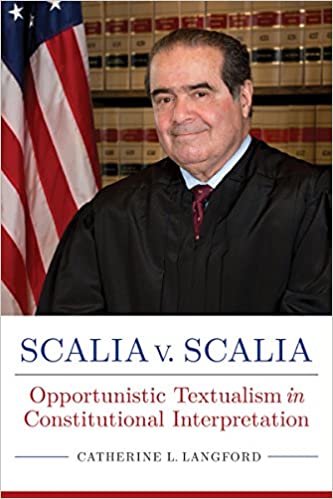Scalia vs. Scalia: Opportunistic Textualism in Constitutional Interpretation

Book Description:
Scalia v. Scalia:Opportunistic Textualism in Constitutional Interpretation examines
Scalia's discussions of textualism in his speeches, extrajudicial writings, and judicial
opinions. Throughout his writings, Scalia argues textualism is the only acceptable
form of constitutional interpretation. Yet Scalia does not clearly define his textualism,
nor does he always rely upon textualism to the exclusion of other interpretive means.
Scalia is seen as the standard bearer for textualism. But when textualism fails to
support his ideological aims (as in cases that pertain to states' rights or separation
of powers), Scalia reverts to other forms of argumentation. Langford analyzes Scalia's
opinions in a clear area of law, the cruel and unusual punishment clause; a contested
area of law, the free exercise and establishment cases; and a silent area of law,
abortion. Through her analysis, Langford shows that Scalia uses rhetorical strategies
beyond those of a textualist approach, concluding that Scalia is an opportunistic
textualist and that textualism is as rhetorical as any other form of judicial interpretation.

Author Bio:
Dr. Langford is a rhetorical scholar interested in public address. As such, her research manifests itself in three different forms of texts: legal rhetoric, political rhetoric, and the rhetoric of public memory. Each of these areas of research impacts the other. Legal opinions elicit political discourse and competing public memory. Political discourse encourages particular understandings of the law and memory. Public memory of events, persons, and laws impacts political and legal discourse. For example, lay persons do not read complete judicial opinions; they understand textual fragments of opinions operate as a simulacrum reproduced in public and political discourses.
Humanities Center
-
Address
Texas Tech University, 2508 15th Street, Weeks Hall 221, Lubbock, TX 79409-1002 -
Phone
806.742.3028 -
Email
humanitiescenter@ttu.edu
